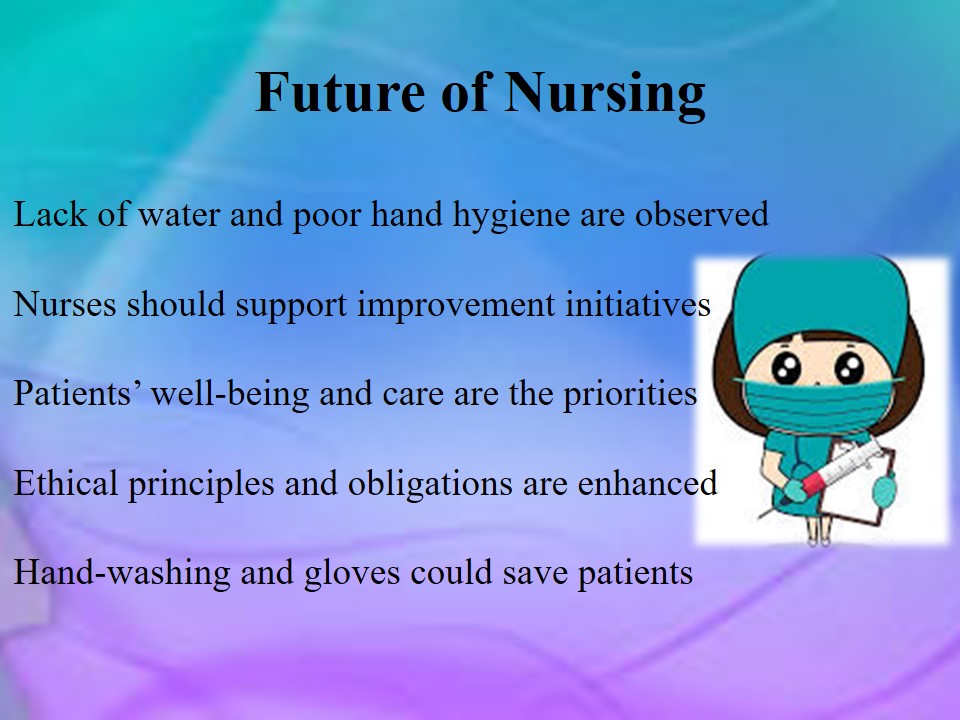Situation
- J.D. is a 25-year-old patient.
- He survived an appendectomy successfully.
- The nurse should take postoperative blood tests.
- Hand hygiene practices were neglected.
- An infection was developed but managed in time.
In one of the local hospitals, a 25-year-old man, J.D., was delivered for an urgent appendectomy. The patient survived the surgery successfully, but additional postoperative tests were required because of hypertension that was suddenly developed during an operation. In the morning, the nurse entered the room, and the patient was eager to communicate, which resulted in the nurse’s inattentiveness and neglect of simple hand hygiene rules. Neither wearing on protective gloves nor washing was done, but the blood was taken. Within the next few hours, an infection was developed, causing fever and rash around the injection. It was managed by taking antibiotics in time and following all postoperative recommendations. The patient’s well-being was stabilized, and he did not officially report the mistake.
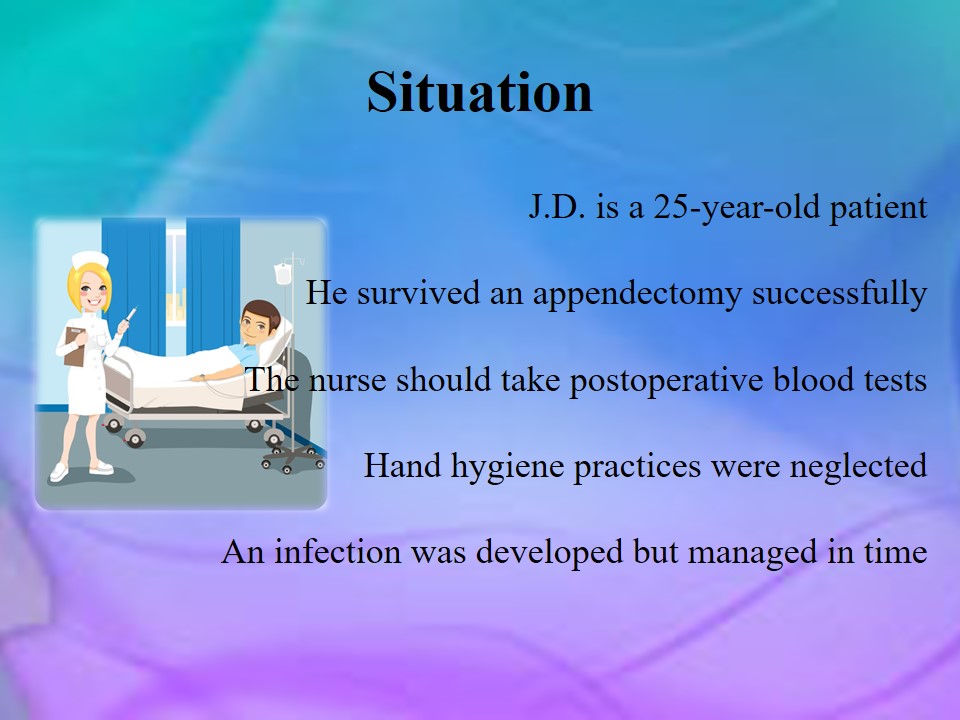
Response
- I was out of the room during blood test taking.
- I was not responsible for checking nurses’ hands.
- I had to remind the nurse about hand hygiene.
- There were several similar cases but no infection outcomes.
- I should care about following hand hygiene guidelines.
Unintentional neglect of responsibilities and the development of friendly relationships could challenge the quality of care. I was asked to bring another pillow to the patient and left the room when the blood test was taken. Although I was not obliged to follow if the nurse used protective gloves or washed her hands, I could remind her about this simple step before leaving. I observed several cases when nurses forgot to wash their hands as soon as they started working with a new patient; however, no serious complications were reported. Unfortunately, the lack of my response to such mistakes could be defined as one of the triggers for infection development because of hand hygiene neglect.
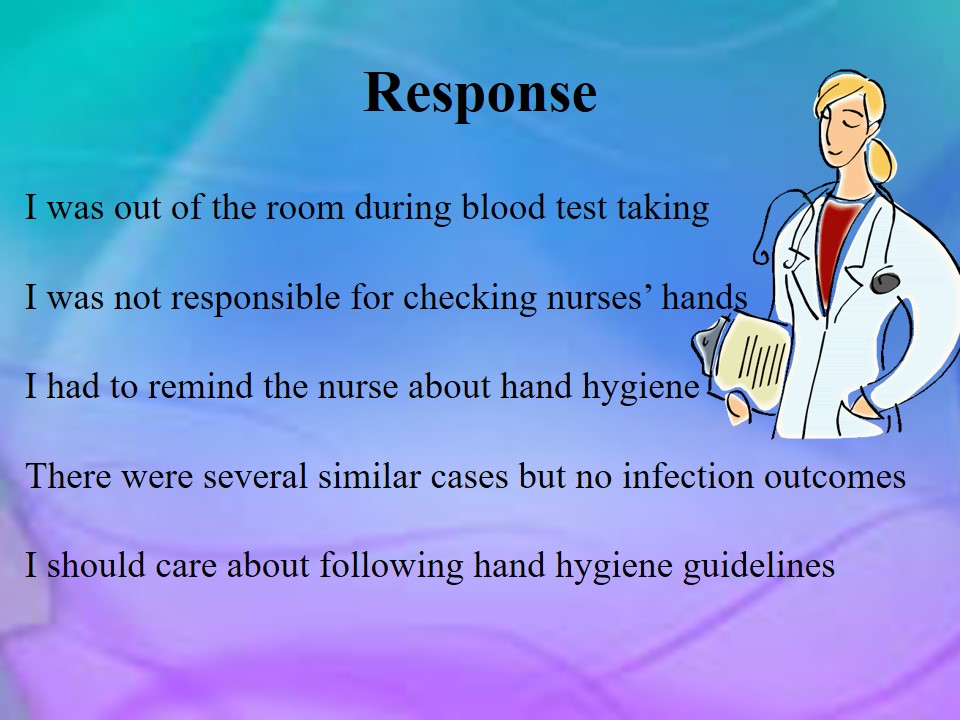
Thoughts and Feelings
- Regret.
- Concerns about not following hand hygiene rules.
- Fear.
- Compassion.
- Future improvements.
One of the obvious feelings in this situation was regret that I was not attentive enough to identify a problem in a hospital. I was overfilled with concerns about why nurses, even being aware of the threats of not following hand hygiene rules, continue neglecting this practice from time to time. I was also afraid of the patient’s condition and my participation in this situation. I demonstrated my compassion to the family and tried to explain everything to the young man’s family. I decided to improve my behavior and now consider hand hygiene as a priority in nursing practice.
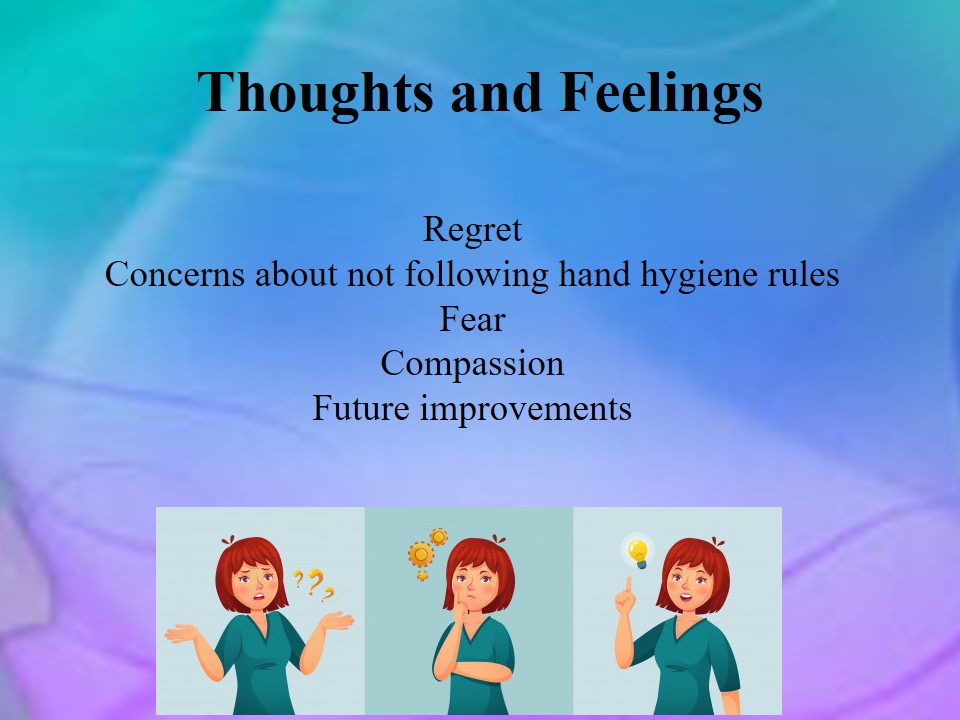
In the Patient’s Place
- I would enjoy the surgery’s outcomes.
- I would need some entertainment.
- I would have interest in the nurse and want to talk.
- I would be concerned about my well-being.
- I would always pay attention to nurses’ hands.
If I were the patient, I would enjoy the outcomes of my surgery and tried to find some entertainment because my well-being was good. As soon as I saw an opportunity to talk to a nice person, I would use this chance, without knowing how attentive a nurse should be. When I felt bad, my concerns about my health would change, and I would like to know what happened. Being explained about hand hygiene, I would never allow a healthcare provider to touch me without gloves.
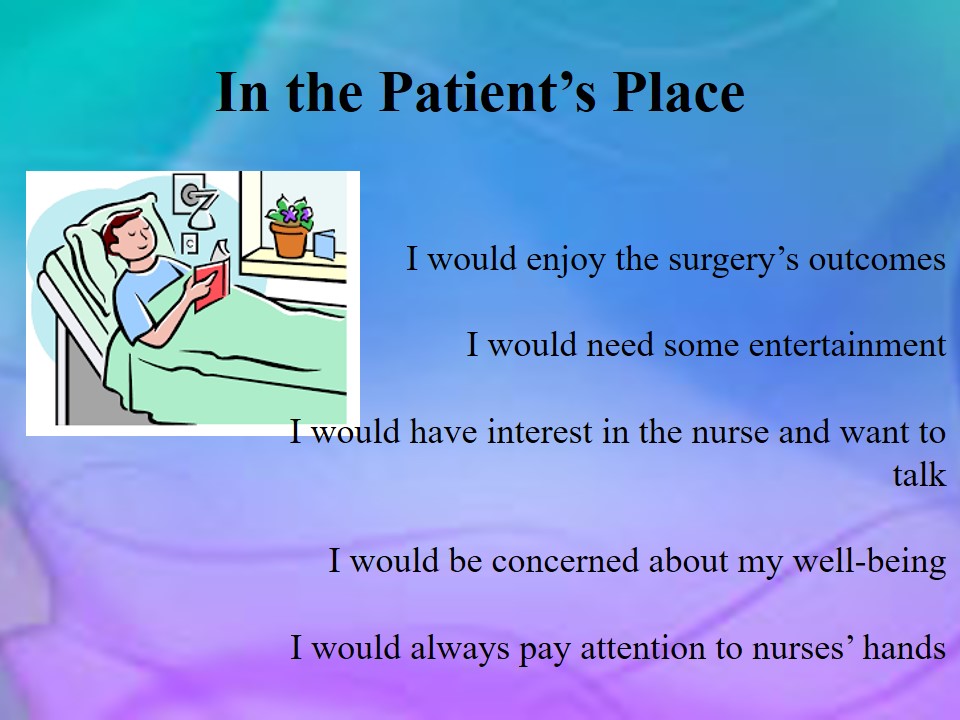
Ethical Principles
- Beneficence:
- the patient’s well-being;
- no patient’s responsibility;
- the nurse’s neglect of duties;
- Non-maleficence:
- harm avoidance;
- no patient’s awareness;
- no hand hygiene.
Not following simple hand hygiene rules in clinical settings leads to a variety of problems, and one of them is a poor understanding of ethical principles. In this case, two core issues, beneficence and non-maleficence, could be questioned. First, any nurse knows about the importance of beneficence as the necessity to promoting the patient’s well-being. It is never the responsibility of a patient but the obligation of a healthcare provider. The nurse neglected her task to do everything that could support the man’s health. Non-maleficence is another ethical aspect that was not followed in the hospital. Instead of avoiding harm, and because of the patient’s unawareness of the outcomes, the nurse did not wear protective gloves and put the patient at risk of infection.
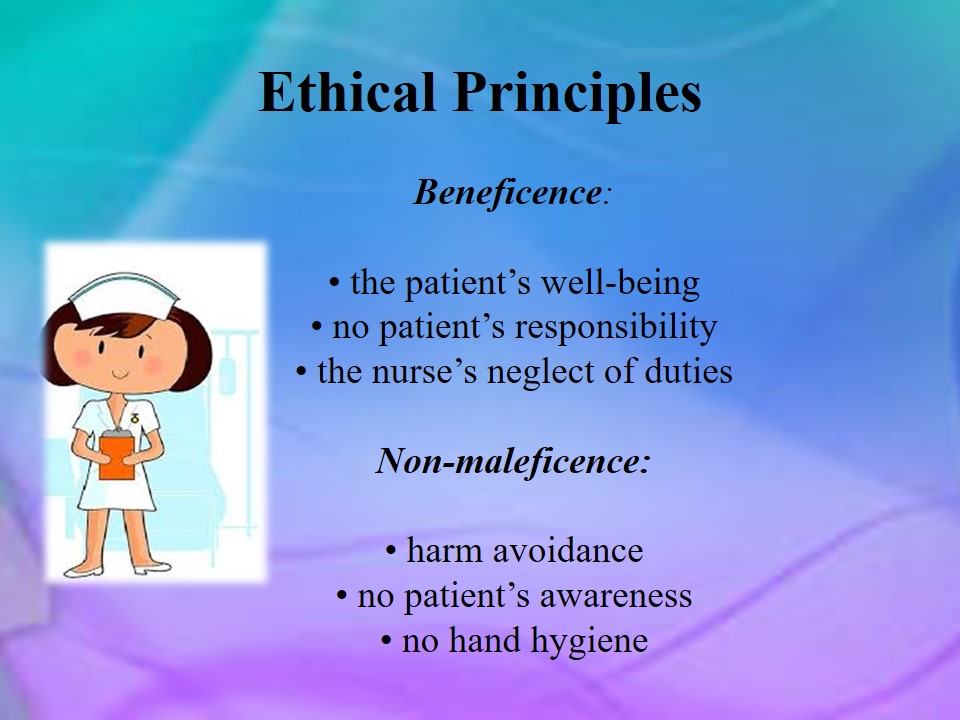
Future of Nursing
- Lack of water and poor hand hygiene are observed;
- Nurses should support improvement initiatives;
- Patients’ well-being and care are the priorities;
- Ethical principles and obligations are enhanced;
- Hand-washing and gloves could save patients.
My future as a nurse has to be built around several important aspects. First, I should remember that poor hand hygiene and water problems still challenge many hospitals. Therefore, I have to consider improvement initiatives as a solution for clinical settings. Second, my primary responsibility is the promotion of patients’ well-being and high-quality care. Attention to the existing ethical principles is a good opportunity to understand what is expected from me as a nurse. Finally, I will never forget that such simple steps and hand-washing and wearing protective gloves could influence treatment and even save human life.
